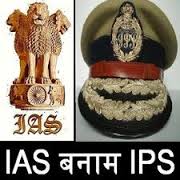Bangalore, Aug 10: In a major shake-up of the State bureaucracy, the State government on Saturday transferred 22 IAS officers and an IPS officer with immediate effect.
 Ekroop Caur has been appointed as Managing Director of Bangalore Metropolitan Transport Corporation (BMTC) and Anjum Parwez, who was BMTC MD, has been transferred to the Bangalore Water Supply and Sewerage Board as Chairman.
Ekroop Caur has been appointed as Managing Director of Bangalore Metropolitan Transport Corporation (BMTC) and Anjum Parwez, who was BMTC MD, has been transferred to the Bangalore Water Supply and Sewerage Board as Chairman.
Name of the officers and their new postings are as follows:
Rajeev Chawla, Principal Secretary, Horticulture and Sericulture department; Shalini Rajneesh, Principal Secretary, Backward Classes Welfare department; M V Jayanthi, Principal Secretary, DPAR (AR, Training and Political Pension);
M S Ravishankar, Secretary, Minorities Welfare, Haj and Wakf department; Rashmi V Mahesh, who is Director General of Administrative Training Institute, Mysore, is placed in concurrent charge of Regional Commissioner, Mysore Division; V Shankar, Deputy Commissioner, Bangalore Urban district; N M Panali, Chief Executive Officer, Yadgir Zilla Panchayat;
Neela Manjunath, Managing Director, Karnataka Silk Industries Corporation; S A Jeelani, Managing Director, Karnataka Silk Marketing Board; Salma K Fahim, Deputy Commissioner, Bangalore Rural district; G C Prakash, Managing Director, Mysore Sales International Limited; Pallavi Akurathi, Commissioner for Religious and Charitable Endowments and Deputy Secretary, Revenue department;
S Sasikanth Senthil, Deputy Commissioner, Raichur district; Krishna Bajpai, Director, Electronic Delivery of Citizen Services, DPAR (e-Governance); B B Cauvery, Chief Executive Officer, Chikkaballapura Zilla Panchayat; Sushma Godbole, Director of Pre-University Education and Executive Director, Karnataka Examination Authority; S B Shettannavar, Chief Executive Officer, Gadag Zilla Panchayat;
Shadakshari Swamy, Director of Horticulture department, S B Bommanahalli, Chief Executive Officer, Davanagere Zilla Panchayat; B Ramu, Chief Executive Officer, Shimoga Zilla Panchayat (all IAS).
The government has also cancelled its orders transferring Meer Anees Ahmed as Chief Executive Officer of Yadgir Zilla Panchayat and continued as Chief Executive Officer of Karnataka State Wakf Board. D Prakash, Superintendent of Police, Bijapur district.
The government has cancelled the order transferring C H Sudheer Kumar Reddy as Superintendent of Police, Bijapur district and he will now continue in the post of Superintendent of Police, Bidar district (both IPS).





Comments
Como os clientes de hoje têm uma sensação de poder, é compreensível que eles estejam plenamente conscientes das opções e soluções disponíveis
para eles.
my website: Por que optar por animações em seu site: http://www.fundacaonokia.org/component/k2/itemlist/user/796453
Add new comment